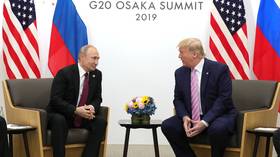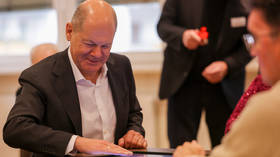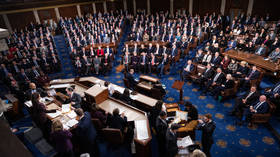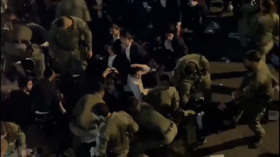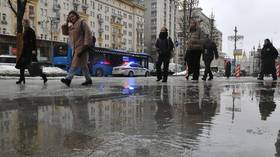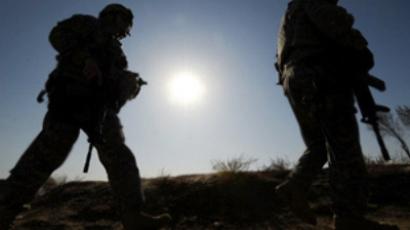Strasbourg prepares for siege as Anti-NATO forces gather
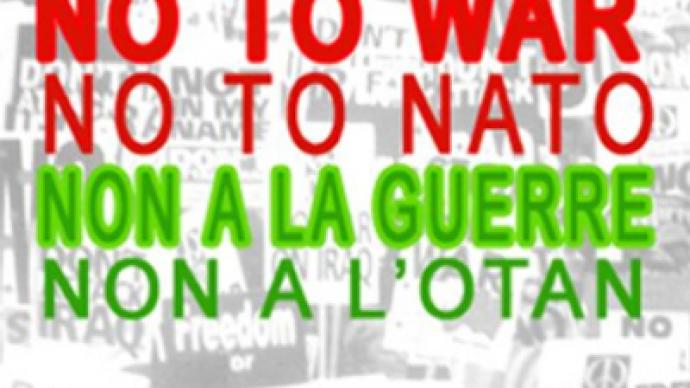
From April 3 to 5, 40 heads of state and government leaders, including U.S. President Barack Obama, will come to Strasbourg and Baden-Baden to celebrate the 60th anniversary of the NATO alliance.
Opponents of NATO from 80 countries are preparing a counter summit and are holding a unique conference this weekend at Strasbourg University to plan strategy. The coalition of 500 associations, known as the Strasbourg Collective, claims the right to demonstrate in the centre of the city. The French government is determined to stop them. Nothing is to be allowed that could threaten the security or the dignity of the occasion. A secure ‘red zone’ is planned to cover a large part of greater Strasbourg.
On the surface all is sweetness and light. On each side of the Rhine a village is to be set up for protesters with the help of the local authorities. The Prefect responsible for security talks of his concern for the “democratic right to dissent under the laws of the Republic” and the leaders of the Collectif de Strasbourg say they are grateful. However, when it comes to actually being allowed to parade through the centre of the City, or anywhere near to it, the gloves come off. The Prefect’s latest communiqué is crystal clear:
“In order to preserve the City of Strasbourg from the exactions, violence and damage which is regularly observed in the fringes of this type of demonstration, the Prefecture has told the organisers of the counter summit that all demonstrations in the centre will be banned on this occasion.”
Co-organiser Frédéric Henry replies, “There is no question of ruining Strasbourg, but NATO cannot claim to occupy a town if we cannot do the same”.
A huge security operation is gradually being unveiled involving thousands of police and military. No one knows how many but estimates vary from 12,000 to a massive 45,000. The whole of greater Strasbourg is to be locked down.
Letters have been sent to all the local inhabitants warning them of strict security measures. Cars are to be banned from large areas of the centre. A whole range of sporting events are to be cancelled. Racing Club de Strasbourg is to postpone its football game against Ajaccio. The Strasbourg Opera is to move its performance to Nancy. The swimming pool is to be closed. The National Theatre has postponed four productions until next year. The local bowls club will be shut. Tourism will come to a standstill as the Cathedral and museums are to be closed. Cinemas, however, will be allowed to remain open.
Speakers at the preparatory conference were clear that they insist on their right to demonstrate peacefully in the centre of the city that symbolises European unity. They say there can be no compromise on an issue involving the fundamental civil rights of the people of Europe and Strasbourg. To applause from the delegates, John Rees from Britain, co-founder of ‘Stop the War’ movement, asked “how can an organisation that claims to defend democracy, human and civil rights refuse us the right to express our views?”
From Germany, Reiner Braun announced that the heads of state were having a banquet in nearby Baden-Baden. “We have not been invited but we shall be at the door,” he said. A French trade unionist explained the need to widen the protest beyond the circle of anti-war activists to ordinary people and ask them: “Do you really think NATO and its wars are a priority in a time of economic crisis?” He stressed, “The NATO anniversary conference was planned long before the western banking fiasco. This economic crisis has blown up in their faces”.
Asked by RT what the Collective hopes to achieve, Frédéric Henry said “The different bodies each have their own ideas about dealing with the issue, but essentially they have a common ground opposition to NATO. We all believe that war is not the answer and that NATO is essentially an organisation for war. Together we are holding an Anti-Summit to make sure that other views are heard as well as those that will come out of the official event.”
When asked what it was about the alliance that they objected to, he said:
“The logic of NATO is military and Atlanticist. NATO represents only 20% of the countries of the world, but wants to be the world’s policeman. The alliance also wants to be the guardian of the world’s resources. At the same time it is taking action further and further from its own backyard most notably in Afghanistan. There is now talk of intervention in Africa.”
He added “After the fall of the Berlin wall there was no need for NATO to continue, but it did. One of the questions we pose is ‘what exactly is NATO for?’”
Robert Harneis for RT



